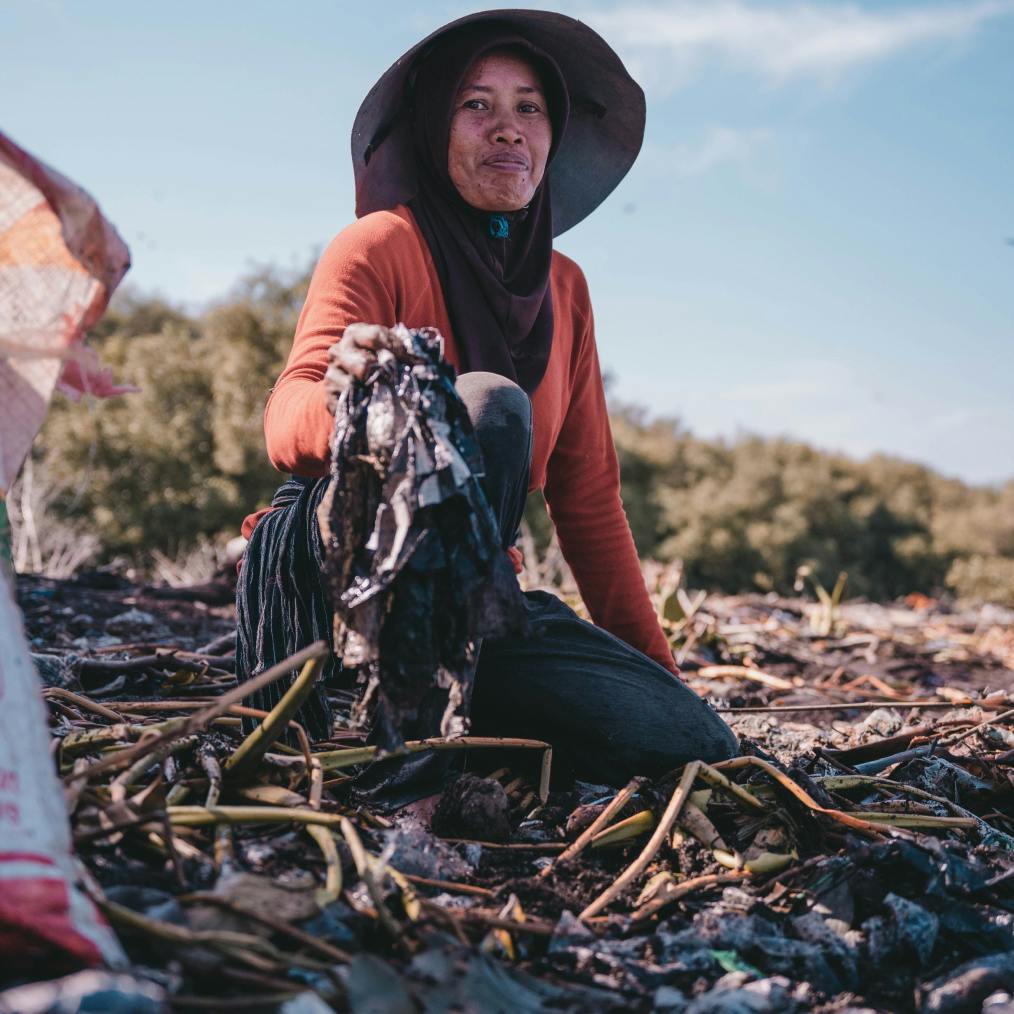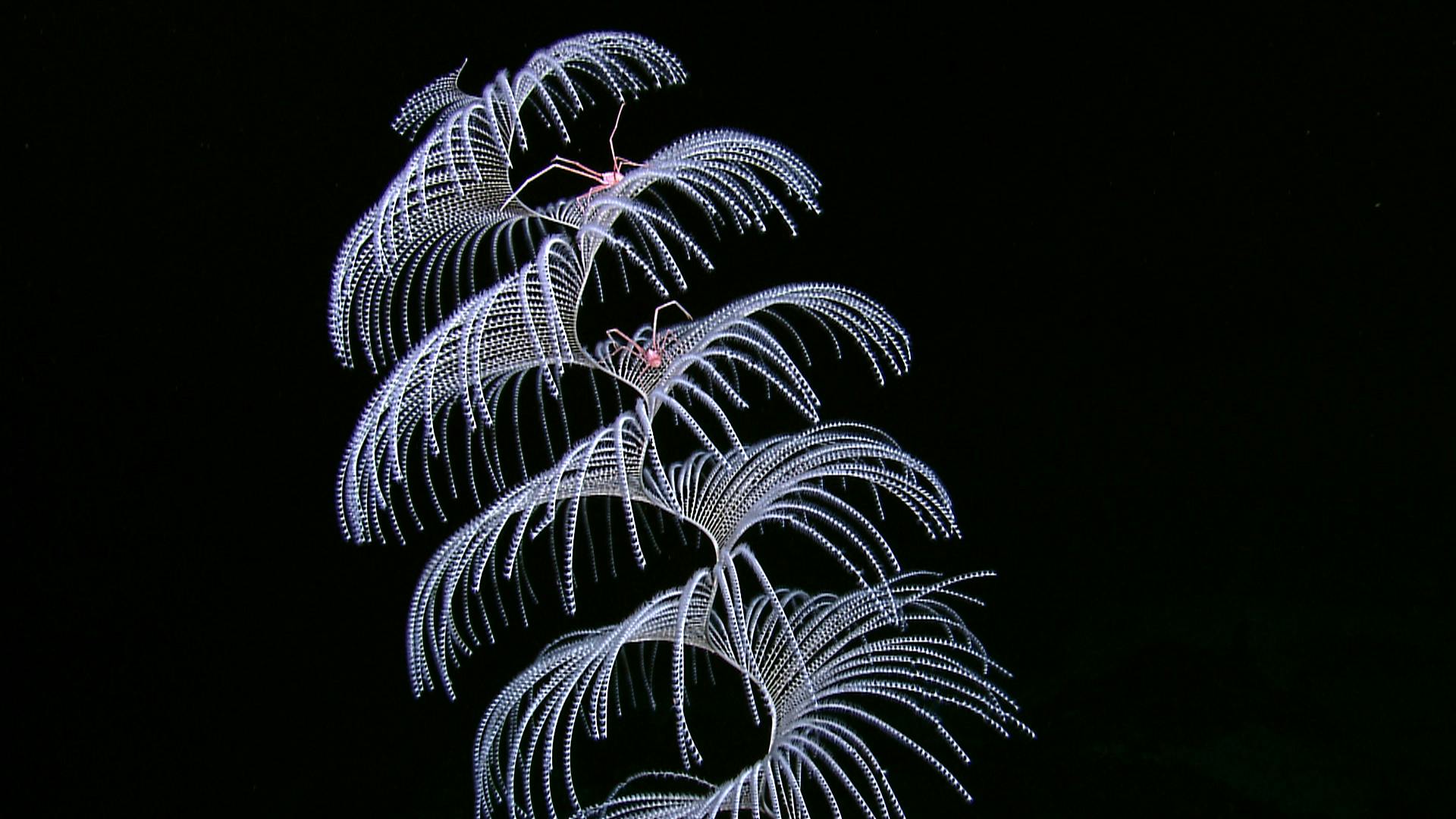Niel Leadon is a Bahamian biologist and alumnus of the University of The Bahamas. In 2020, he was selected to participate in the Sail for Climate Action (S4CA) journey through Europe.
“This journey will serve to show younger generations of Bahamians that education is truly our passport to experiencing and influencing the world around us,” Niel told Farrah Johnson at The Tribune.
Taking part in this transatlantic journey, Niel was surrounded by participants from Latin American and Caribbean nations, as well as participants from Indigenous communities. Although this ocean-bound climate coalition was cut short due to the pandemic, it was one of the first to elevate youth climate activist voices from these regions — giving those who had been left out of climate change conferences and policymaking conversations a chance to share their perspectives.
Despite lockdown procedures and quarantines, Niel has not missed a beat, continuing to advocate for climate action while in quarantine. Niel has teamed up with other Bahamian activists and Only One to speak out against the exploratory oil drilling taking place in The Bahamas.
During our interview, which has been edited and condensed, Niel speaks about his passion for science, what inspires his activism, and some of the challenges and opportunities that The Bahamas faces as an ocean nation.
Kara Jamie Norton (KJN): What sparked your passion for ocean conservation?
Niel Leadon (NL): I remember my first time wanting to be a scientist. I was in the fourth grade and I had a science teacher. Her name was Mrs. Dorsette. After a few weeks, Mrs. Dorsette gave me the nickname her “little scientist.” That stuck with me because I didn’t know what that looked like for my demographic. I didn’t know any Black scientists. I’d certainly never seen any on TV. There was no one that looked like me and definitely no one that sounded like me and no one that was from The Bahamas. I remember we had a project where we had to make an animal cell and I was so nervous because I didn’t want to disappoint her, and also coming from a low-income background I didn’t have a ton of materials to use. I remember my mom helped me with that project, and we got cereal boxes and cut out the funny plasma shape for the animal cell and used construction paper. I got a perfect score, and that experience really underscored for me that there is a place for someone like me in the sciences.
I like to tell people that I exist at the intersection of pop culture and science. I post content which has demographic numbers and hard science, but I try to present it in a way that’s fun. It may be a meme, it may be a funny video, it may be something that’s socially or politically relevant at the time. This approach made me more accessible to people. Everything that I share encompasses my love for the environment, my love for the ocean.
KJN: What role does the ocean play in the lives of Bahamians?
NL: The ocean and Bahamians have a very deep history of ocean life and ocean living. The slavery era when African slaves were brought to the islands was part of our ocean history. We also have a history with piracy, bootlegging, and prohibition.
In terms of the everyday life of the modern Bahamian, the ocean is a part of just about every celebration you can think of. I think some of my fondest memories are of going to the beach as a kid with my family, with my sister and my aunts and uncles and my Mom. During Easter, you have huge picnics and you spend time on the beach. It’s a known fact in The Bahamas that on holidays, if you don’t get to the beach at a sensible time, you may as well not go, because everyone’s going to be there. Bahamian feasts are also notorious. Seafood is part of our culture. There’s conch and there’s about 100 ways you can cook it.
When I think about the future I want for the country and the future I want for my children, I don’t want to have to sit here and play them archival footage of what conch was and how we used to cook it.
KJN: What served as a catalyst for you to become a climate justice advocate?
NL: As I got older, I think I always wanted to study biology, but when you’re someone that goes to college, at least in my family, they expect you to become a doctor or a lawyer or an engineer. For a very long time that was my career path. In February 2017 I decided that this would be a huge mistake and I tore up the grad school application for medical school. I think that was one of the first moments for me when I actually had to stand up and point to all the environmental impacts I was seeing. That was me affirming, “Look, I’m concerned about sea levels rising, I’m concerned about ocean acidification, I’m concerned about the rising plastic problem, I’m concerned about food and water availability for impoverished communities.” The moment I took a stand, it was like a light turned on inside of me.
During Hurricane Dorian, I actually did some relief work with a nonprofit. I ran their social media for a couple of months after the hurricane and connected people to resources that would provide aid.
Bahamians will not willingly class themselves as climate refugees, just because we’re a country that’s one of the most developed in the Caribbean. It was not until Dorian happened, and people were drifting out to sea and being rescued by the U.S. Coast Guard, that people said, “We have a climate problem,” or, “I’ve been displaced.”
KJN: Why do you choose to stand against oil exploration coming to the Bahamas?
NL: I am reminded of the saying, “My people perish for a lack of knowledge.” It’s not that Bahamians don’t see the merit in learning about scientific research about climate change, they just don’t see themselves reflected yet. For instance, Bahamians understand that an oil drilling project is dangerous, but they don’t understand the urgency of climate action, and they also don’t get the power that youth mobilization can harness. I think my goal, if I can accomplish anything, is to teach people to never stop making noise, to keep shaking the table. I’m a huge believer that change is necessary, but sometimes change comes with a bang and it comes in with a huge scream and it upsets the atmosphere. When you see or hear about activism in the United States, you think about mass rallies and Black Lives Matter, you think about the Civil Rights era. When it comes to climate action in the United Kingdom, you think about Fridays For Future and Extinction Rebellion. I would like the Caribbean to take a stand and become leaders in climate action because it’s our future that is at stake.
KJN: What is your call to action to fellow Bahamians?
NL: By speaking out on climate change some people may think that I am anti-government, or that I don’t like the current prime minister. I would raise this point with our current prime minister, our past prime minister. I would raise this with the Queen of England, I would raise this with Obama, I would raise this with Lady Gaga. Climate change is not going to go away.
Social media activism is valid, and we have the capacity to mobilize people through it and get them out on the streets to demand change. Another thing you can do: keep your government and your local representation accountable. The last thing is to talk to your friends about what is happening to our oceans and climate, because I’ve found that a lot of people do the work online, but that’s where it exists and that’s where it stays. We have to break out of this culture of being Facebook warriors and let people see you out on the streets demanding change.



















































